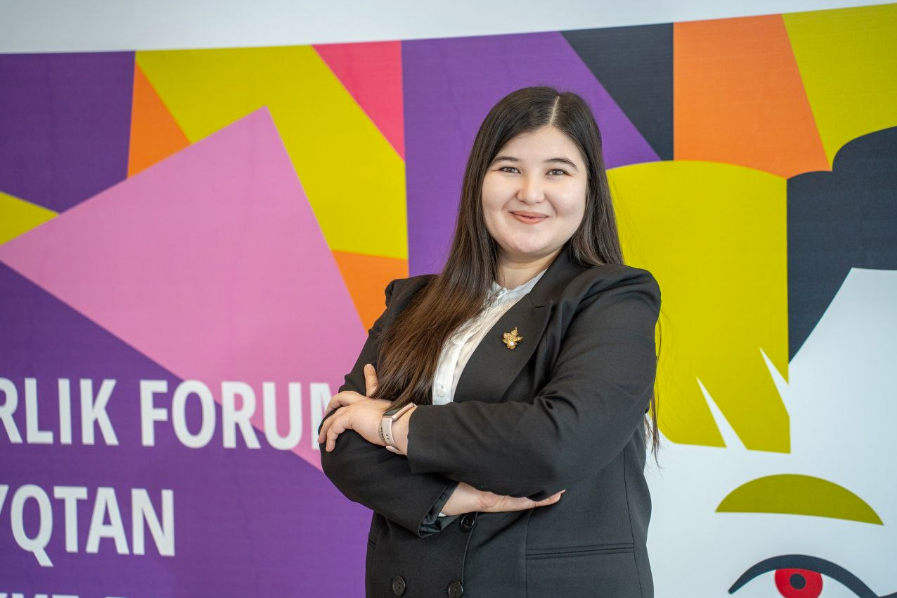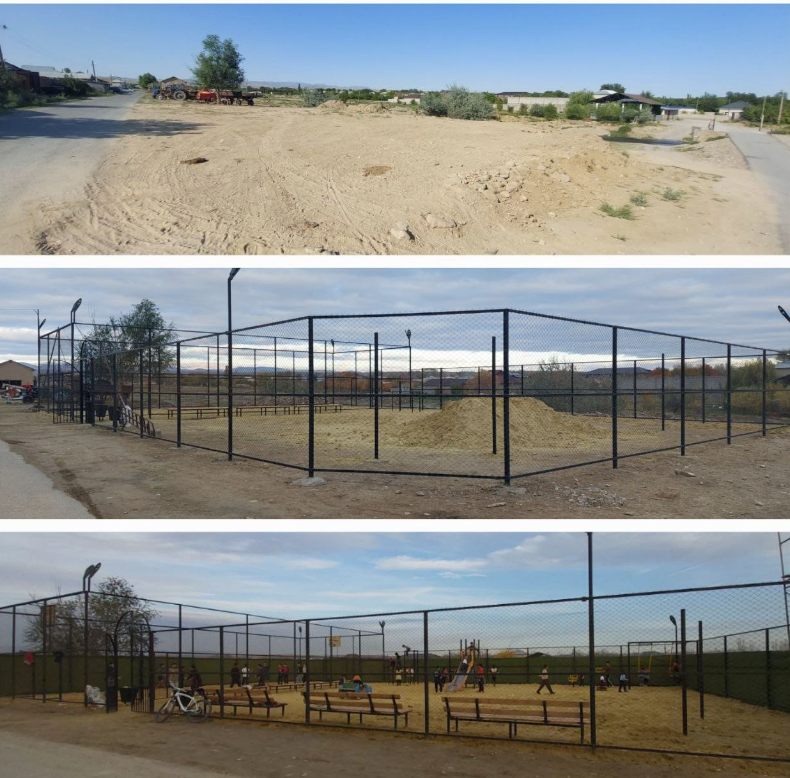
The small village of Karnak, located in Kazakhstan’s Turkistan region, is a community of approximately 16,000 people. To address what she identified as limited educational opportunities for the 3,500 school-aged children and 3,200 young adults residing in the village, Karnak native Nasiba Nuritdinova initiated a project to cultivate leadership skills and enhance youth potential.
Throughout high school and university, Nasiba was determined to develop her own skills and positively contribute to her community. Understanding the salience of practical experience, Nasiba secured an internship in the civil sector while working toward her graduate degree. After the internship came a full-time job, which offered Nasiba valuable insights in the field of community development. “It was during this enriching period that I realized I want to extend these experiences to the youth in my hometown,” Nasiba recalls. After receiving her master’s degree in social sciences in 2022, Nasiba returned to Karnak eager to use these newfound skills and knowledge to the benefit of her hometown.
In 2023, Nasiba enrolled in the Central Asia Youth Leadership Academy (CAYLA) under Eurasia Foundation’s Social Innovation in Central Asia (SICA) project, funded by USAID. Nasiba dedicated her time in CAYLA to enhancing self-development opportunities for Karnak’s youth. After researching and assessing the needs of children and youth in her native village, Nasiba compiled her findings into an analytical report.

This report informed the design of Nasiba’s ambitious social project, “Enhancing the Potential of the Youth of Karnak Village for the Development of Civic Leadership.” With a Young Civic Leader Scholarship from SICA, she launched a series of training sessions to engage Karnak’s youth in sustainable community development, youth activism, volunteering, and more. Participants developed real-world skills in advocacy, project management, effective communication strategies, and teamwork. Beyond skill development, these training sessions elevated the participants’ confidence as changemakers and community leaders.
“Trainers from Almaty and Shymkent had a profound impact on the children, imparting valuable knowledge and insights to them. This experience proved transformative for the children, altering their perspectives and attitudes towards life. It was the first time our village had hosted such trainings, making it an unprecedented and remarkable event,” comments Turar Mamenov, a rural teacher.
Thanks to her CAYLA training, Nasiba’s sharpened advocacy and project management skills led the project to success. “Training a handful of individuals wasn’t enough for me; I aimed to reach more young people,” she explains. She realized that she could make a difference in Karnak by pushing for more recreational spaces for children and youth. “Why not leverage my grant writing skills to build new playgrounds?” she mused. Her initiative attracted grant funding and interest from authorities and the local community, and resulted in the construction of two new playgrounds: one for young children and one for sports. The facilities provided Karnak’s children with a space to congregate, exercise, and develop social skills.
Reflecting on her experience, Nasiba remarked, “CAYLA has been one of the most transformative programs in my life. It not only connected me with like-minded peers from Uzbekistan and Turkmenistan but also sharpened my focus on activism, crystallizing my future objectives and the paths to achieve them.”

Address:
Almaty, Kazakhstan
609 Seifullin St
"Forum" Business Center
Thank you!